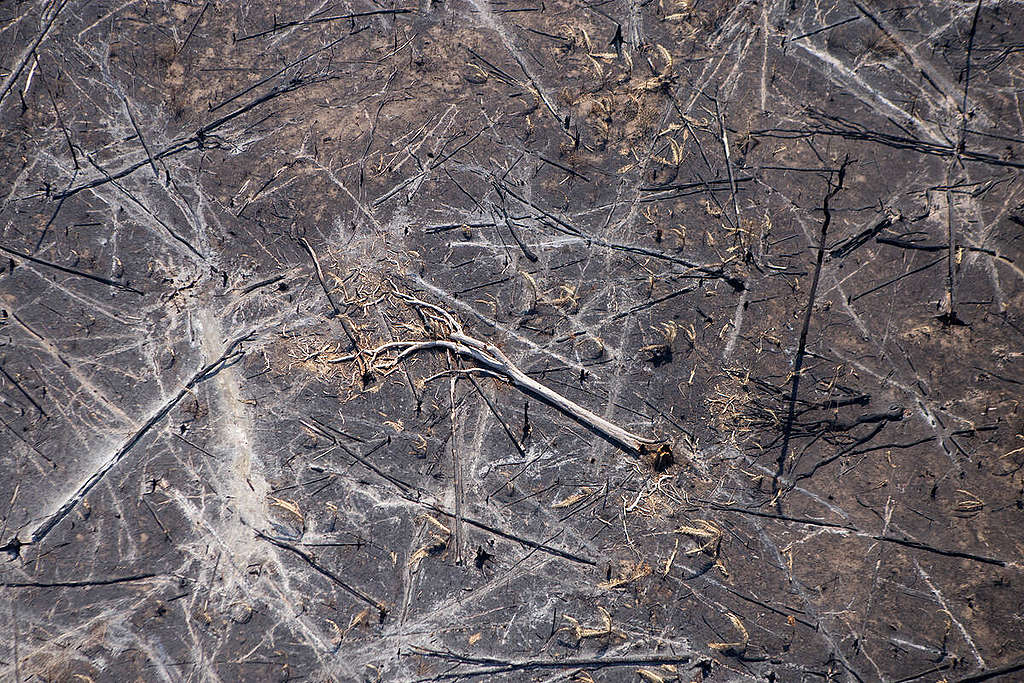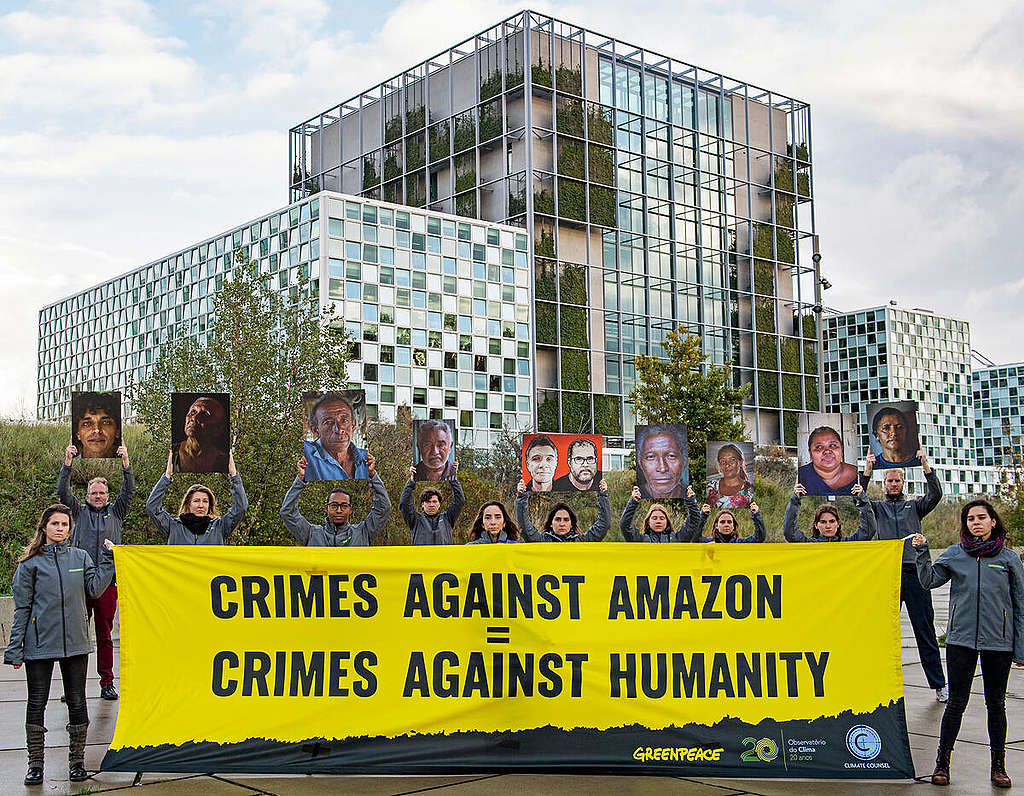In recent years, as the rate of deforestation in the Amazon has reached an all-time record high, a forceful question has entered environmental discourse: surely, the scale of this devastation can be characterised as being not just immoral but criminal in nature?

It has long been our contention that international crimes are already being committed in the Brazilian Amazon; that these crimes fall within the framework of the Rome Statute of the International Criminal Court (ICC) and can and should be investigated and prosecuted at the ICC. The only thing stopping the criminals responsible from being held to account was the absence of a clear, coherent, and convincing legal case.
Today that changes. In a case (or "Communication") filed by Greenpeace Brasil, Climate Counsel and Observatorio do Clima – with Greenpeace International joining as a supporting party – the ICC Prosecutor is asked to investigate whether the mass human rights abuses that have taken place in the Brazilian Amazon over the last 10 years constitute crimes against humanity.

To support this case, powerful evidence is provided of a massive and widespread attack orchestrated by an organised network of politicians, civil servants, law enforcement officers, businessmen and other criminals against rural land users – including indigenous and traditional peoples and environmental defenders – in the Amazon Region. In an online platform designed by Interprt launched today alongside the Communication, testimonies of survivors, photographic evidence, 3D reconstructions of crime scenes, visualisations of data, analysis of satellite images, and deforestation data all point to the same conclusion: that the violence and abuse directed against rural land users and defenders in the Amazon constitute crimes against humanity.
The platform provides evidence of over 12,000 land or water-related conflicts in the Brazilian Amazon over the past 10 years, resulting in 430 murders, 554 attempted murders, 2290 death threats, 87 cases of torture, and over 100,000 expulsions or evictions. The Communication argues that such crimes were committed in pursuit of the same underlying policy: to facilitate the dispossession of land, the illegal exploitation of natural resources, and the destruction of the environment.
We are aware that we face an uphill struggle to pursue full accountability at the ICC, not least because its resources are overstretched as a result of the ongoing war in Ukraine and the many other crimes against humanity it is called on to investigate.
But there has never been a more urgent time to demonstrate its commitment to equal justice for the Global South and there has never been a better case to signal to those responsible for environmental destruction that the age of impunity is over.
The implications of this case extend beyond those directly involved in these crimes, however. The network of criminals exposed in the Communication are propped up by an assortment of bankers, investors, and multinational companies who have aided, assisted, or otherwise enabled the crimes in question to take place. These financial and corporate actors, particularly in the capitals of the Global North, should consider themselves on notice that they may be investigated for aiding and abetting crimes against humanity.
For the sake of accountability, for the sake of our planet, and for the sake of the communities and individuals reliant on the Amazon rainforest to sustain their way of life, we therefore call on the ICC Prosecutor to investigate these international crimes and the criminals responsible.






